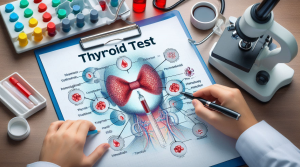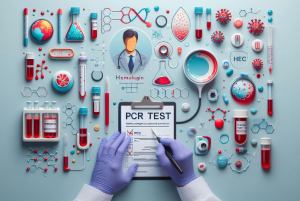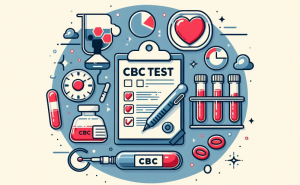What is a Vitamin B6 Test/Pyridoxine Test?
A Vitamin B6 Test, also known as a Pyridoxine Test, measures the levels of vitamin B6 (pyridoxine) in your blood. Vitamin B6 is a water-soluble vitamin that plays a vital role in various bodily functions, including protein metabolism, red blood cell production, and immune system function. It also contributes to brain development and the creation of neurotransmitters like serotonin and norepinephrine, which influence mood and sleep patterns.
Why Do You Need a Vitamin B6 Test/Pyridoxine Test?
A healthcare professional might recommend this test if they suspect:
- Vitamin B6 deficiency: Symptoms like skin rashes, cracked lips, swollen tongue, confusion, depression, or weakened immune system might necessitate the test.
- Monitoring vitamin B6 supplementation: People taking high doses of vitamin B6 supplements may require regular monitoring.
- Assessing certain medical conditions: Conditions like kidney disease, malabsorption disorders, or autoimmune diseases can affect vitamin B6 levels.
What Does a Vitamin B6 Test/Pyridoxine Test Measure?
The test primarily measures the concentration of pyridoxal 5′-phosphate (PLP), the active form of vitamin B6, in your blood. Indirectly, it can reveal:
- Vitamin B6 status: Whether you have sufficient, deficient, or excessive levels of vitamin B6.
- Potential health risks: Both deficiency and toxicity can pose health concerns.
- Underlying conditions: Abnormal levels might signal issues with nutrient absorption or other medical conditions.
Preparing for the Test
Typically, no specific preparation is required for a Vitamin B6 test. However:
- Fasting: Some labs might require fasting for a certain period before the test. Check with your healthcare provider beforehand.
- Medications: Inform your doctor about any medications or supplements you are taking, as some might interfere with the results.
Understanding the Results
Normal vitamin B6 (PLP) levels usually range between 20-100 nmol/L. The interpretation can vary depending on the lab and individual factors.
- Low levels (deficiency): This might lead to symptoms like skin problems, anemia, neurological issues, and weakened immunity.
- High levels (toxicity): Although rare, excessive vitamin B6 intake, particularly from supplements, can cause nerve damage.
- Normal levels: Indicate adequate vitamin B6 status.
Risk Factors and Prevention
Factors increasing the risk of vitamin B6 deficiency include:
- Poor diet: Diets lacking in vitamin B6-rich foods like meat, fish, poultry, whole grains, and vegetables can lead to deficiency.
- Malabsorption disorders: Conditions affecting nutrient absorption can impact vitamin B6 levels.
- Alcoholism: Chronic alcohol use can interfere with vitamin B6 metabolism.
- Certain medications: Some drugs might affect vitamin B6 levels.
Prevention and management involve:
- Balanced diet: Include plenty of vitamin B6-rich foods in your diet.
- Supplementation: If dietary intake is inadequate, your doctor might recommend vitamin B6 supplements.
- Addressing underlying conditions: Treating any conditions causing malabsorption or affecting nutrient uptake is important.
- Limiting alcohol intake: Moderation or abstinence from alcohol supports maintaining adequate vitamin B6 levels.
Remember, maintaining optimal vitamin B6 levels is crucial for overall health and well-being. Consult with your healthcare provider if you have any concerns or suspect a deficiency.

 7351982473
7351982473











